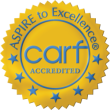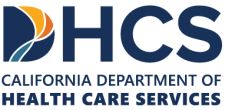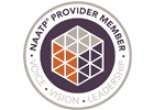Social media has the power to shape your perceptions, behaviors and self-esteem. While these platforms offer valuable opportunities for connection and information sharing, they are also rife with misinformation and skewed perspectives, which can present significant risks, especially for vulnerable people.
How Social Media Use Affects Body Image
Many social media influencers gain followers by posting idealized content that does not represent everyday reality. Platforms like Instagram and TikTok flood users with images and videos promoting unrealistic body standards. Constant exposure to this content can severely impact women’s body image and self-esteem.
- Admiration of thinness: Many social media feeds celebrate “perfect” thin bodies with airbrushed and highly edited photos, reinforcing the notion that such body types are the norm.
- Pro-anorexia content: TikTok has seen a rise in pro-anorexia content. Though moderators tend to flag and ban these videos, their ubiquity can encourage harmful behaviors in viewers who are already susceptible to eating disorders.
- Comparison and competition: Social media naturally inspires users to measure their worth and appearance against others. Doing so can lead to feelings of inadequacy and low self-esteem, which are risk factors for developing eating disorders.
Be Cautious About Your Consumption
The spread of half-truths about nutrition and health can be particularly dangerous on social media, where users often misrepresent facts for sensationalism or engagement.
- Fad diets and quick fixes: Social media is rife with claims about rapid weight loss methods, which rarely warn people about potential risks or downsides.
- Lack of credible sources: Influencers who are not health professionals might promote unhealthy habits or inaccurate health advice.
- Selective sharing: Users may only present the positive outcomes of extreme diets or fitness routines, without discussing the struggles or adverse effects they experienced.
Recognizing the Signs of Social Media-Induced Eating Disorders
Heavy social media users may develop harmful attitudes about food and eating before they realize it. Here are some red flags to look for.
- Preoccupation with your self-image: Spending excessive time viewing or interacting with posts that promote unhealthy or unrealistic body standards.
- Drastic changes in eating habits: Adopting new, restrictive diets, experiencing anxiety about eating specific foods or becoming preoccupied with dieting and controlling your caloric intake.
- Emotional distress: Feelings of sadness, anxiety or irritability following social media use can indicate that the content detracts from your mental health.
Mitigation and Recovery Tactics
Consider the following strategies to combat the negative impact of social media on eating disorders.
- Educational initiatives: Take time to learn about the dangers of eating disorders and seek educational content that fosters body positivity and healthy lifestyle choices.
- Digital literacy: Critically evaluate your social media feeds and understand the intent behind the influencers you choose to follow, distinguishing between credible sources and misleading information.
- Mindful consumption: Intentionally limiting your social media use to reduce your exposure to potentially harmful content can alleviate the pressure to conform to impossible standards.
Addressing Disordered Eating With Specialized Care
Through our extensive experience, the Rising Roads Recovery team has observed a compelling link between trauma, mental health issues, substance abuse and disordered eating. This connection is the foundation of our Food & Mood program, which we’ve designed to address the complex nature of eating disorders.
Eating disorders can manifest in various ways, from overeating during periods of high emotional stress to restricting your food intake to exert control over your life. These behaviors may result from deep-seated psychological trauma or as a response to stopping substance use. Regardless of the cause, our team provides the necessary care to guide women toward lifelong recovery. We’d love to hear from you when you are ready to heal physically and emotionally.





